#and its like a declaration of love
Explore tagged Tumblr posts
Text
.
#seen so many good an*me lately that my top 10 is getting heavily contested and all fked up#not that it matters#i just have fun ranking em#and its like a declaration of love
0 notes
Text
fall out boy is so fascinating because anyone who doesnt know anything about fall out boy thinks theyre only relevant to millenials who had intense emo phases while anyone who is a huge fall out boy fan is aware of the fact that every single album they release has gotten them a wave of new young fans. and actually thats not even true because every album second album cycle the fans from the one before the last one are like what do you mean you became a fan during the last album cycle i didnt think anyone was still onboarding. and this is going to go on forever until they retire probably.
edit: i must assume you like fall out boy. consider: fall out boy pins.
buy my art @dilsdesigns
#dils declares#sorry theres this guy thats been doing a what your spotify wrapped says about you series#and his thing for fob was 'millenials. you were born before 1998'#and thats just false! theres 14 year old fob fans right now!#whos first song they ever heard of theirs was love from the other side!#and obviously theres me. hi. but like it seems like itd be the case#but its not.
2K notes
·
View notes
Text


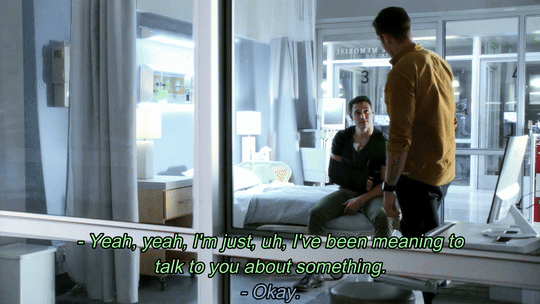

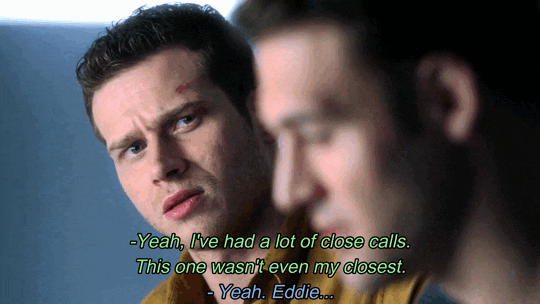

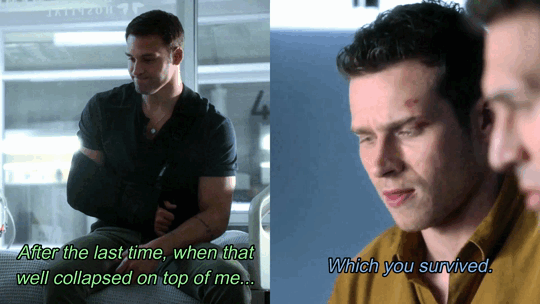










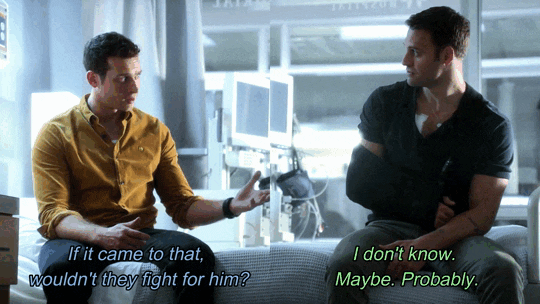

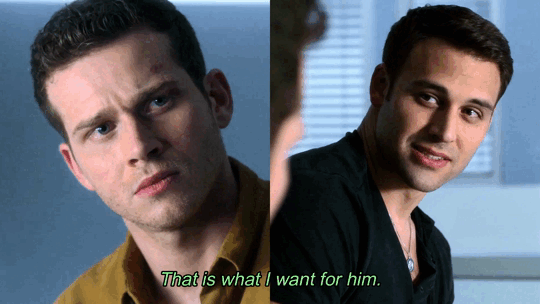


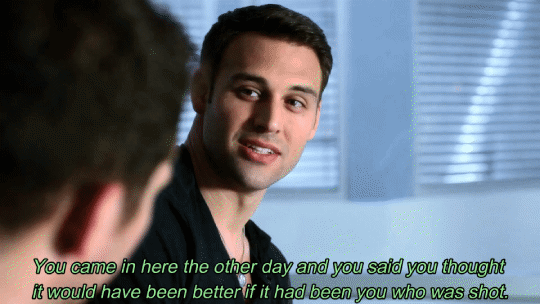

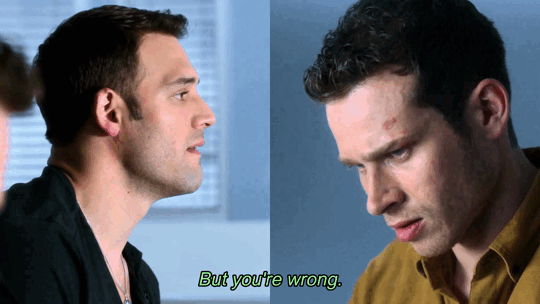
Buddie Countdown to Season 7:
16 days.
#911#buddie#911edit#buddieedit#911 on fox#911 fox#911 abc#evanbuckleyedit#eddiediazedit#my edit#buddies7#911hiatus2023#otp: you don't need to pretend with me#usercam#the fact that this scene is real but they never talked about it again is absolute insanity#what do you mean this happened#this is an aborted love confession#buddie scenes#eddie here is fully aware hes in love with buck and i don't care#he knows exactly what hes saying he also knows buck wont call him out on it#its nuts#sure there are a few way to see the way buck interpreted this scene but like#this is a declaration of love no matter how buck viewed it so like#it is#madness#911verse#evan buckley#eddie diaz
725 notes
·
View notes
Text
Ectoberhaunt Day 13
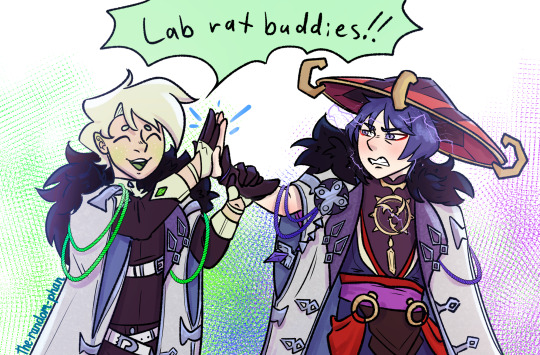
Isekai: Old Hero New World
#i have Thoughts about Harbinger!Danny#bro is Very interesting in Aether bc he wants to go home#he and aether would prob get along rly well tbh#this danny is kinda bitter bc he's been separated from his family. but he can be a silly goofy guy occasionally#he and childe are besties. i declare this now. both love their families and want to protect them#also- abyss and ghost zone?? hmmmmmmmm#abyssal energy is ectoplasm... maybe?#idk#oooh that would be neat bc then danny is like the exact opposite of aether/lumine (with their full/light power)#danny has a fake cryo vision. bro doesn't really need a delusion but he can have an anemo one. as a Treat#(he wants to be Free of this world)#danny just wants to go home but no he gets dropped into the middle of snezhnaya smh#ALSO. back to the point of the post lol-#danny HATES dottore. but also the guy kinda reminds him of his parents (who he rly misses). it's very trauma-bond-y.#danny phantom#dp#ectober#eh 24#day 13#ectoberhaunt24#ectoberhaunt 2024#ectoberhaunt#(its rly late i know but i'm not stressing this year✨️)#(dottore is also equally fascinated in danny.but no way in HECK is danny gonna let him experiment. so dottore has to be Subtle about it lol)#genshin impact#scaramouche#combining my fixations 👉👈 (always)
159 notes
·
View notes
Note
did they say in the audio that he's aro too or did they just say he experiences romantic attraction but not anything else? sorry i have no money to buy the boxset lol
he declared he feels nothing of the sorts! they explain the differences between someone who feels romantic and more sexual attraction, and then River is like "oh doctor! you told me you feel nothing of the sorts! you are looking for someone who doesn't have romantic feelings in particular abd here you are!"
(because River and him talked earlier about them being husbands and wife of course, and he was like "a wife??? me??? not now or ever! I don't do that sort of stuff! couple things that is")
so then when he looks for someone who does not feel romantic attraction to save the day later, river makes him realise that's him! so he uses that to win the day!
so yeah!!! offical aromantic doctor!!!!
hoped i explained it well hehe
#ninth doctor#9th doctor#doctor who#imma upload the audio clips later after work! Friday is busy for me#BUT YEAH!#thanks for the ask!#so technically#the doctor's aroness is the one thing that got confirmed officially!!#imma need to relistrn fkr the ace part but im sure its there#SO YEAH.#AROMANTIC DOCTOR CONFIRMED REAL#im sure its there because i remember something like that being mentioned#BUT THE ARO PART WAS THE MOST DECLARED ONE!!!#john dorney i love you
231 notes
·
View notes
Text
True knowledge exists in knowing you know nothing || Dr. Ratio & Socrates
Okay, I legitimately laughed out loud writing that title, but listen. LISTEN.
Ratio's inspirations derive from many sources; from referencing Archimedes's brain-blast in the tub, to being doomed to have his head bonked by Newton's apple ad infinitum in his idle animation, to his ultimate line ('esse est percipi' / 'to be is to be perceived') a direct quote from Berkeley on Idealism - it's apparent that his design nods towards scholars across time periods rather than being a direct parallel to a singular academic.
Nevertheless, just for fun, I've been rotating Ratio and ancient greek philosophers around in my head and have had a great time chewing over how parallels Socrates in particular. I am in no way saying that Hoyo even thought about Socrates while they were designing Ratio, but I thought I'd share my thoughts. I think there are some worthwhile parallels to be drawn that touch on all aspects of Ratio's own philosophy regarding ignorance, the value of knowledge, and his deep appreciation of life. So, let's get into it.
Ratio is interested in humanity and curing 'ill minds with knowledge', that 'to turn a blind eye to the folly of others is not an etiquette, but a wicked worldly practice.' Ignorance is a disease - this is a concept that can be viewed through a Socratic lens. Socrates believed that that virtue and knowledge were impossible to separate from one another, and that virtue could be developed through acquiring knowledge and insight. If knowledge is virtue, then ignorance is vice. In Socrates's mind, no one would rationally choose to do something bad. People might choose to do bad things, but this is rooted in their own perception of the world - as in, someone would only choose to do something bad (for the world, or for themselves) because they believed (erroneously) that it was the right or good thing to do. To Socrates, the cure to this was knowledge: 'There are two kinds of disease of the soul, vice and ignorance.' & 'What does most harm in the world is not sinfulness but ignorance'.
To Ratio, 'If ignorance is an ailment, it is the duty of the scholars to weed it out and heal the universe'. He views his own ignorance as 'filth' that must be cleansed through methods such as reading. He also views knowledge as a method for humans to overcome their problems - 'Another day has passed. If your problem still hasn't been solved, is it possible the problem is you?' & 'You look distressed. Is something troubling you? if so, you can figure it out for yourself.' These statements sound harsh, but they also clue us into Ratio's philosophy - that through self-examination and improvement, one can overcome one's ailments.
Socrates was also known for being a trouble-maker, he was abrupt and tactless and did not care for someone's social standing nor decorum. He was also known for using what is now called the Socratic method, asking a series of questions that ultimately seek to show contradictions in the beliefs of those who posed them, and to move systematically towards a hypothesis free from contradiction. Socrates rarely made assertions himself - after all, he had no wisdom of his own. But he could interrogate others in order to expose their own foibles, much to the embarrassment and annoyance of those around him. He was once described as a 'gnat' chewing on the 'lazy horse of Athens', causing it to wake up and spring to life due to his persistent gnawing and prodding. Ratio also employs the Socratic method - 'I'm asking questions' - and also adopts sophist tactics such as playing devil's advocate and taking opposing sides (with both himself as seen a story quest, and with others as we see with his texts urging us to take up a side so he might debate us). Through questioning and interrogation, upsetting what we consider social convention and norms, we can dispel contradictions and thereby come closer to some form of truth.
To add to this - as highlighted in the replies below - Ratio’s skill ‘intellectual midwifery’ is a reference to the Socratic method. The idea being that Socrates helped those around him give birth to the knowledge that was already within them, rather than treating his students minds as empty vessels for him to fill with his own answers. Again this is beautifully echoed in Ratio - he doesn’t want to tell you how to live your life, he wants you to work out for yourself what it is you need, thus empowering oneself through self-examination and questioning.
Socrates did not believe in writing anything down. He believed that face-to-face communication was a far more effective way of communicating knowledge - which means, unfortunately, what we know of Socrates is primarily derived from secondary sources. Much of what we know about him today comes from Plato's dialogues, and Plato was known for liberally exercising artistic license.
Although Ratio is not dead, I find it interesting that his character story is told exclusively through secondary sources. To quote - '…There are no less than eight documentaries detailing his legendary exploits, and over a dozen memoirs about him. However, despite the plethora of commentaries, none of them seems to provide a compelling perspective.' It's as though there are no surviving fragments penned by Ratio's hand and all we have to go on is through the lenses of other people. This challenges us, perhaps, to try to think about our own interpretation of Ratio since secondary sources cannot be taken as a wholly unbiased account - and once again employing the Socratic method and empowering the reader to come to their own interpretation.
While Socrates left no writing behind, he was interested in spreading knowledge. Socrates spent most of his life in Athens, a city that was, during his lifetime (~470-399 BC), a hotpot of scholars, wisemen and philosophers. Athena, the Greek god of wisdom, was named after the city - her symbol the owl that is also appropriately perched on Ratio’s shoulder. Also in Athens at this time where the sophists. The sophists were a class of intellectuals who were known to teach courses in various subjects - but often for a high fee, and generally centred around the idea that persuasion and the use of knowledge as a tool was more important than wisdom or truth itself. There's some debate about whether Socrates could be characterised as a sophist himself, but, crucially, he is characterised as refusing to take payment for his teachings. He was born a plebeian (perhaps you might describe it as a mundane background.) He was known to dress in rags and go barefoot, speaking to and (often antagonising) people from all walks of life, preferring the marketplace as a center of debate than palaces or courtrooms. I can't help but think of the sophists as similar to the genius society (or at least Ratio's depiction of them in contrast to himself), cooped up in ivory towers and gatekeeping knowledge to the most privileged. He doubts if Herta's talent is always helpful to others, he compares Screwllum to a 'monarch'. Then again, the sophists may in fact be a bit of a parallel to the Intelligentsia Guild - from Ratio, 'when someone is willing to listen to knowledge that is being disseminated and circulated, a price is created'.
Socrates (or at least the Platonic depiction of Socrates) was at one time declared the wisest man in Athens by the Oracle of Delphi. Socrates balks at this assertion - how can he possibly be the wisest man in Athens when he in fact knows nothing at all? This was not a claim made of modesty - he truly believed that he had no wisdom, that he was unsure what 'wisdom' itself even was. Ultimately, Socrates concludes that the only way that the Oracle could be correct is that by actually acknowledging that he knows nothing he paradoxically is the wisest man in Athens. All wisdom, therefore, is rooted in wondering, with wondering only possible if one is open to admitting one's own ignorance.
What I love about all of this in relation to Ratio is that Ratio styles himself as a mundanite. The Intelligensia Guild advocates that 'all knowledge must be circulated like currency' and accepts 'all beings… who seek to learn'. Ratio has no time for the satisfied self-styling of intellectualism, he himself states that 'to speak knowledge, we must first make people realise their own folly.' No one is above criticism in this regard, even himself - again, to quote 'Whenever someone agrees with me, I feel like I must be wrong.' Again, I feel as though he would resonate with Socrates here: 'Smart people learn from everything and everyone, average people from their experiences, and stupid people already have all the answers'. With Aventurine, he is quick to mock his appearance as over-the-top and vapid - once again making it clear his distate for vanity and hollow displays of showiness (albeit he may have been acting for Sunday's sake here. Also, no comment about this coming from a man who runs around in a toga, lmao) Equally, with Aventurine, it is clear that Ratio is willing to learn from him - he apologises when he offends, he abhors his methodology and yet he still relies upon it and trusts in Aventurine's plan, he is drawn to him in some ways precisely because he is so different to himself. Aventurine (at least styles himself) as impulsive to Ratio's slow and steady methodology, Aventurine whose learning has been entirely self-made vs Ratio who has spent his life in classrooms, Ratio who scoffs at Aventurine's favourite games of chance yet adds slot machines to his simulated universe. And to Socrates, the experience of aporia – in all of its discomfort and disruption – is the very catalyst of wonder, and that wonder was not just the root of wisdom but also the way to live a good and happy life. There is something beautiful in this to me, and this extends to Ratio. Ratio fundamentally cares about life. For all his brashness, his lashing out against 'idiots', his harsh demeanour - he wants people to live good lives, he wants to contribute to the good of humanity - all people, even those he is annoyed by, he cares so profoundly and absolutely about life. The entire reason why he is obsessed with wisdom and learning is not to exalt or elevate himself, not as some kind of ritualistic expression of piety towards a deity, but it is instead an expression of devotion towards life itself. Ratio has a strict work out routine not so that he can show off his body, but because living healthily is living well and working out is a component of that. Even the way he fusses and worries about Aventurine, someone he is pointedly irritated by, reveals how deeply his care runs. So so much of his character is centered on caring for life, even if it is not immediately obvious.
Finally, I'd like to highlight some ways in which Ratio is not like Socrates. First of all, Socrates was repeatedly described as 'ugly' by fellow philosophers Plato and Xenophon - this is contrast to Ratio being repeatedly described as 'handsome'. This is an interesting subversion to me (albeit likely an indulgent one) as in both cases both men attempt to distance their physical appearance from the weight of their words. Ratio wears the bust for many reasons, but way to view it is that he is attempting to stop his appearance from bearing any influence in the subject of debate.
Socrates was also said to be blessed by a divine touch, and as we know, this is something that agonises Ratio as Nous has not yet turned THEIR gaze towards him.
Lastly, Ratio has - thankfully - not yet been ordered by the state to drink hemlock for all his trouble-making and blustering. Though perhaps he may someday be put on trial by the IPC if the theories that he is working alongside Aventurine to undermine the corporation are true - we will just have to wait and see.
Thanks for reading my little ramble. I'd be super interested in anyone's thoughts if they'd like to share, but regardless, I'll leave off on some of my favourite wee quotes from the Rat man:
'Even a life marked by failure is a life worth living - it is only in moments of solitude and despair, when help is absent, that fools grasp how to pick themselves up.'
'Do stay alive. I wish you the best of luck.'
#dr ratio#ratio#aventurine#hsr#honkai star rail#my witterings#i love the rat man so much idk#much of the information i describe about Socrates comes from the podcast History of Philosophy without the Gaps#which I highly recommend if this is your kind of thing lol#but mostly I just wanted to have fun spinning my hyperfixation around lol#Also I make a few declarative statements throughout this but know that I do not claim to be a scholar of greek philosophy lol#please check the verasity for yourselves before relying on what I have to say#for I know nothing u see u see? :P#also I just wanna add in that I do NOT think Ratio is a perfect human being#ratio can be hypocritical and cruel and ignorant just like the rest of us#but I adore that too as afterall he is also an expression of humanity#with all its earthy faults
171 notes
·
View notes
Text

trains :)
this is a very rough and scribbly comic, but sometimes that's all a comic is going to end up being lmao. the guy with the jacket is darren, glasses is andy. not featured, andy's dead brother who nevertheless insists on haunting the subtext
the main thing I wanted to draw was the train tho
bsky ⭐ pixiv ⭐ pillowfort ⭐ cohost ⭐ cara.app
#darren and andy's brother were best friends and darren was there when andy's brother died#and made a very normal promise to always look out for andy. unfortunately. it's a little. hmmmm. suffocating! a decade later!#not that darren's been looking after andy for ten years. they were on opposite ends of a fictional planet#but in the way that andy's in love with darren and would be fine with dramatic declarations of 'i have to keep you safe' if they were#not attached to his dead brother. like. if that's the only reason he gets to hear words like that he would like to Not Hear Them thanks!#also andy is an extremely dangerous person in his own right so it's also like. hmm. hmmmmm.#it's messy. the death of andy's brother defined darren in a kind of way so the prospect of having to re define himself#without the absence of andy's brother to shape that is Unpleasant to think about#thankfully they're both going to be stuck on this fucking train for a significant amount of time! for my enjoyment!!! its train time baby!#long post#komiks tag#original tag
196 notes
·
View notes
Text
Something about toriel hating the monsters outside of the ruins in similar way to chara hating humanity. Not only does she isolate herself from them, but the ruins monsters are also pretty intimidated by her. if she never made that agreement with sans then im pretty sure there would have been no convincing her to let us leave. Like at all.
God even the queen toriel ending might suck for her just a bit. Imagine being put in charge of your people who betrayed you and are all willing to play niceys NOW after 6 of your kids died (in the name of 2 of them!) and they would've killed the 7th if they didn't befriend everyone! No wonder she got rid of the royal guard and told everyone to be nice and welcoming as far as she would be concerned that's what they should have been doing from the start. I imagine it's very awkward between her and undyne. I know she fires alphys in Canon, but I imagine they would have eventually started to get along and she could join the human fanclub with mettaton. But God it'd probably be so awkward. So so awkward. I really think she develops a great disdain for monster kind during her exile that she has to workout.
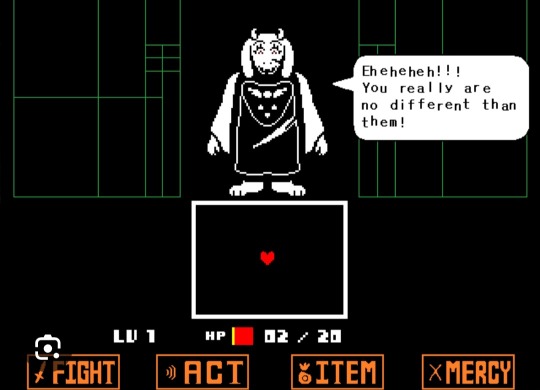
I know what she says here is popularly interpreted as the 'them' being asgore/ the royal guard. But it always felt like to me she was referring to monster kind as a whole. (That and if chara has similarities to toriel, it makes sense that toriel would have similarities to them...)
Exiled queen is even WORSE for her cause now that disdain is mutual and the little kid she tried to protect killed people and a war is inevitable at that point. At least with asgore in charge she had the solace that he would be too much of a coward to go through with it. At least she has sans (and sometimes papyrus) in those endings for support but I can't imagine she in any way in a better mental place than before.
#toriel#toriel dreemurr#undertale toriel#undertale#posting this before i get the chance to chicken out#like i dont think shes a particularly hateful character but i do think she does dislike alot of things with asgore very much getting the#brunt of it. but thats deserved. and i cant see her starting a fight or being particularly rude about it either. unlike chara shes mature#enough to understand monsterkind isint a monolith but GOD imagine grieving your children and your husband (WITHOUT ASKING YOU)#declares WAR. a war you CANNOT WIN. A WAR YOU HAVE ALREADY LOST. to YOUR people and they CHEER!!!#they KNEW chara. they called chara the hope for the future of humans and monsters and her HUSBAND declares WAR and they CHEER!!#shed have to hate them just a little bit. like no wonder she exiles herself away from them in solitude up until sans she probably was wary#of trusting any of them to be willing to protect a human child. no time for her to grieve and lament her loss before her stupid (i love him)#husband declares something he cant take back.#toriel undertale i will always love you#hastag my headcanons#not really its more analysis but i do hc she feels awkward around a majority of monsters now especially the royal guard and asgore.#ive said she was right before but isint it devastating that pacifist does prove her right??
36 notes
·
View notes
Text

#REALLY wuick doodle because i got school.#i didnt know wtf to draw to be honest.#imaghine its like a heartfelt.... declaration ?? like when hes like i'll become a person you can trust!!! to sasara. or something like that#that was my thinking anyways love you bye
16 notes
·
View notes
Text
OBSESSED with the weird dynamic between Ayden and Emhira. The dawnfather and the Matron of ravens, "you cannot heal everything" Vs the constant attempt to do so. The dawnfather says I love you all, clarifying this sentiment in such a moment of division and LOOKS at her last, separating her from the all? Or making sure she knows she is included? And what is reeling me is that a very long time from now, when the gods will have returned to the eternal beings they are, they will each choose a twin as their champion. Does the dawnfather choose Vex as a response to the matron choosing Vax, is it just that they cannot help but being parallels, life and death always circling each other. Now that I think about it , Whitestone is obviously a big worshipper of Pelor with the suntree being a symbol of him and life itself and the de rolos if I remember correctly also worshipped the matron. It's just so interesting to see all these connections that have always existed but have not yet existed.
#I am wowed by how Nick and Laura are playing them#like wow that is not only talent that's just something else on another level#I love that they sat beside each other so we can also witness the choices they make physically#like the matron shying away from his declaration? pheraps being uncomfortable with it#but really so many things that come into play when you assign a mortal vessel to them both#the fact they smiled when they recognised each other#like ' yes of course you are here'#recognition and reaffirmation through the other#and I also think they are both the youngest if I am not mistaken#which is interesting all on its own#cr downfall#critical role#exu downfall
53 notes
·
View notes
Text
I genuinely believe Naksu haunts the narrative. Her actions and existence as Naksu heavily impact the entire story. Her past, the life she lived and the shadow of it in Mudeok. But we don't actually know any of it because Naksu is not in the story.
Like. What she lost as Cho Yeong is something that we are never allowed to forget, the loss of her body, her powers, her freedom, and her impending death as a soul shifter hangs over Mudeok's head like guillotine.
All the while we don't actually know the Shadow Assassin Naksu, she died in the first episode, as soon as the story began. Other than training and killing (soul shifters) what kind of person was she when she didn't have to rely on another person else or hide or live as someone else? We don't know and we don't ever learn any of that.
Still, her absence is the plot, yet her former existence as Naksu influences everything; Yul's actions and what she was to him, Jang Uk's goal of returning her powers, the revelation of soul shifters to Park Jin, Jang Gang's departure, Jin Mu's accomplishments, the King's Star even.
Everything is about her existence but she doesn't actually exist at all anymore.
#before anyone disagrees she declares naksu dead in ep 5 or something and tell yul the person he knew no longer exists in ep 19#naksu is dead but the shadow of her hangs over everything#what could have been and what wasn't is mourned in nearly episode#alchemy of souls#also im not saying one life is better than the other but there is always this sense of loss in mudeok that is never forgotten by the story#SHE DESERVED TO LIVE AS HERSELF#Also for me its the tragedy of all of it that makes the show so good#like dont get me wrong im certifiably insane over the romance and would be very happy with the ending offered but even the then the best pa#*the happy ending offered in ep19#is that#she escaped the circle of tragedy shes been trapped in#and has so many people that she loves and cares for now and how those ppl care for her just as much#this post is brought to you by: my mutual and i finally finishing our rewatch
141 notes
·
View notes
Text
i dont think this is relatable to anyone but a lot of people i encounter have never heard of fall out boy but the thing is i dont know if theyve never heard of fall out boy or if they just dont know theyve heard of fall out boy. and youre thinking, well thats easy. list some singles. ok. which singles. because trying to figure out which fall out boy single someone is most likely to have heard is like throwing a dart at a map. do i start with sugar? centuries? light em up? thanks for the memories? if they dont know any of these songs does that tell me theyve never heard a fall out boy song? no. it tells me theyve never heard those ones. dance dance, this aint a scene, the phoenix, uma thurman, i don't care. and still someones gonna come out the gate swinging to pull the rug from under me and tell me a week later they did actually know fall out boy. theyve heard the last of the real ones.
#dils declares#i pick the safe obvious choices and its NEVER FUCKING THAT.#one time i was bonding with my godbrothers girlfriend over our love of alt music#and i was like oh my favourite bands fall out boy#and she was like i dont really like fob theyre too new#she did not realise that the band formed in 2001 and released their major label debut in 2003.#this is what im dealing with.
204 notes
·
View notes
Text
Afo: *targets katsuki because he's izuku's closest person.*
Katsuki: damn right i am. and my name is kacchan thank u very much.
#mha#bnha#bkdk#dkbk#bakugou katsuki#like at some point its just like#this is the most queer coded shounen rivalry ive ever seen#its amazing honestly#i love how freaking intense their relationship is like actually#all of katsuki's insane declarations aside#i'd still like for them to actually you know... TALK about their feelings when all is said and done
164 notes
·
View notes
Text
the only way the council of nikaea makes sense is if you remove the emperor almost entirely and make this a domestic political dispute between the primarchs, perhaps even presided over by horus as a representative of the emperor (tying themes of the emperor’s relationship to religion as a religious figure by being the spirit of god in the trial room) OR, in my opinion, more interestingly, you make the entire council a set-up by the emperor and imply that he has a long-term plan to dismantle the primarchs and astartes as part of the end of the crusade in a manner pretty similar to the thunder warriors because he fundamentally understands that these genetically-altered beings created specifically for the purpose of conquest and destruction cannot possibly be maintained in a galaxy that has Been Conquered TM and will only become a threat to the imperium overall and must be eliminated as part of the final part of the crusade’s overall goal the literal moment they are no longer needed - and that’s why even though it’s so clear that magnus is more charismatic in his arguments than mortarion, and that the librarian programme is well-supported by very reasonable primarchs like guilliman, vulkan, the khan, lion’el, sanguinius, fulgrim, horus, and even konrad (who is not reasonable but is the emperor’s very special baby boy) vs. disliked by mortarion and angron (who simply. the emperor does not give a shit about) and rogal dorn (not really causing a huge fuss about it), that the trial/council/conclave is an entire farce and represents a massive betrayal to magnus specifically that could even cause him to listen to tzeentch or be actively more disloyal to the imperium than him accidentally ending up on the traitors’ side by mostly what seems like a paperwork issue.
#like dont get me wrong. i LOVE the whole 1000 sons being a traitor faction whilst magnus being a loyalist for the duration of the heresy#but their attempts at making him more nuanced by making him a bit less squeaky-clean are simply not working. bc he’s p much always right.#like the thing is. the council is rigged. there’s simply no way you can have me believe that mortarion and one space wolf guy testify and#the emperor is like “daammn”. when their opposition is magnus & 12 different legion representatives AND technically fulgrim and sanguinius#but you also then have to make it narratively rigged too. make it seem like magnus is definitely without a doubt going to win bc it would#be insane if he lost (easy. narratively we have already achieved this)#and then make it absolutely clear that even mortarion thinks the anti-psyker side is going to lose. EVERYONE thinks magnus is going to win.#and then have the emperor declare the ban on psykers. and have THAT be the betrayal to magnus. have THAT been surprising to EVERYONE#i dont know what it is about the council. it is so badly done imo though. and the more you think about it. and not because of the event its#just narratively how it is handled doesn't make sense.
9 notes
·
View notes
Text
"If the structure of your world ever evaporates, I will still be here."
I think The Q might contain one of the greatest declarations of friendship/love ever.
#books#the q#beth brower#this seems clunkier out of context but trust me in context it's very moving#they're discussing how quincy's entire world is wrapped up in work#so even if she likes the people there if the business somehow disappeared she probably wouldn't see them again#because they all have other family/friends to go to and she doesn't really have any#leading to this promise#and let me tell you it's just about enough to make me believe in found family#because this works as a romantic or platonic declaration#it's a promise#a commitment to provide safety and stability when there's nowhere else to go#and i love it#this book is so odd because i liked it quite a bit last year#then rereading i was at first like 'why did i like this at all?'#there's no scene-setting or character description it's just kind of stuff there#but then the relationship starts to develop and i am SO invested#under normal rules it shouldn't take 100 pages for the story to get good but in this case it's worth it#it's such an odd structure#each chapter is almost like its own little short story#or a character sketch#almost like the character have stopped to discuss their own character worksheet#but in context it somehow works#and it drives home how much traditional publishing and writing rules stifle creativity#because your average editor would look at this and try to smooth it over#make it all into one flowing narrative#and it would lose so much of what makes it unique and compelling#following the rules of 'good writing' robs you of all the stories that don't follow those rules#there is so much scope outside of the one 'best practice' that is currently in fashion#and those stories need to get told too!
21 notes
·
View notes
Text
y'all also i woke up in a cold sweat dreaming of a sakuatsu squid game au. atsumu is there bc he borrowed money from a loan shark to bail out osamu (but lied to osamu and said the money was his) and he's been fighting for his life against the shark's thugs since. matsuhana was there too, and bokuto and hinata. omi was undercover investigating bc motoya went missing and he found the card in his room. during the first game of red light/green light, omi saves atsumu's life.
that's all i got for now folks. but if anyone wants to write this out in slowburn (slight) enemies to lovers (possible betrayal) longfic i will pay you please just name your price
#ru.writes#sakuatsu#skts#sakusa kiyoomi#miya atsumu#theres gotta be some betrayal and some fighting bc they gotta beat the shit out of e/o at some point#and they definitely have to have a moment that they make out and fuck or smth close to it#essentially the ending has to be different - maybe the two of them at the end - atsumu saying he cant do it#he cant kill his omi - theres a declaration of love then#and omi doesnt want atsumu to die so he tries goading him#scoffing at him and telling him he doesnt know what love is - that it can't be love bc they barely know each other#and they fight again but after theyre exhausted and bloodied with atsumu on his back and omi on top of him caging him in#leans in and whispers his escape plan in atsumus ear and presses a long kiss with trembling lips#and he doesnt tell atsumu he loves him back but its the closest thing to it#yeah#please guys like i thrive off angst yall
17 notes
·
View notes